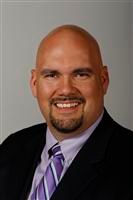What’s on your mind this weekend, Bleeding Heartland readers? This is an open thread: all topics welcome.
In what the Des Moines Register’s editors described as a “new low in the out-of-control race to keep or attract employers,” a state board unanimously approved $4.75 million in financial assistance to Kraft Heinz, which plans to replace a large factory in Davenport with a new facility on the northwest side of town. Although at least 900 people are expected to lose their jobs in the downsizing, the city of Davenport will put up $10 million in tax-increment financing to support the project. The Iowa Department of Transportation and the city are expected to commit $5.8 million for road work around the new factory site too. Never one to shy away from handing state funds to large corporations, Iowa Economic Development Authority Director Debi Durham has let all downsizing companies know that the state of Iowa’s wallet is open: “‘Will I take this deal any day? You bet,’ Durham said Thursday morning. ‘This is a future play.’” Durham also told reporters she “expects the state to do more of these kinds of deals in the future, as more massive companies merge.”
Iowa State University economist Dave Swenson characterized the Kraft Heinz incentive package as “bizarre,” adding, “The idea of providing public assistance for a company that has billions of dollars of annual sales cannot make sense to anybody.” The Register’s editors noted, “the company could get $20.75 million in state and local assistance,” which “works out to nearly $43,700 for every job Kraft Heinz agrees to keep”–and roughly 200 of the jobs the company promised to save will pay less than $37,000 a year.”
Speaking of lousy deals, Iowa’s plan to privatize Medicaid looks worse and worse. A post in progress will discuss this policy in more detail; for now I enclose below excerpts from several stories by Jason Clayworth for the Des Moines Register. In recent weeks, Clayworth has exposed damning facts, including:
• Some claims made in bidding documents from the four private insurers chosen to manage Medicaid in Iowa “contain unverifiable data, misleading statements or half-truths.”
• No data support the government’s estimate that privatizing Medicaid would save $51 million from the state budget during the first six months of the program.
• The insurers selected to manage Medicaid “have each been held accountable in other states for serious service and administrative errors, including some that wrongly delayed or denied medical services to poor residents […].”
• Iowa’s Medicaid director Mikki Stier “had improper communications with an insurance company consultant and former lawmaker during a critical review period that ended with the for-profit company being selected” as a managed care provider for Medicaid.
A November 6 letter from the Centers for Medicare and Medicaid Services to Stier enumerated “significant concerns” about the transition to managed care; excerpts from that letter are at the end of this post. Federal officials and Iowa Senate Democrats have scheduled “listening sessions” around the state to focus on Medicaid privatization. Click through for meeting details, as well as a list of state and federal officials to contact with concerns. Only the feds can stop this train by denying the necessary waivers. Branstad administration officials have been unmoved by any of the Register’s revelations or by the risks to vulnerable Iowans, which many speakers raised during Legislative Oversight Committee hearings on November 3.








